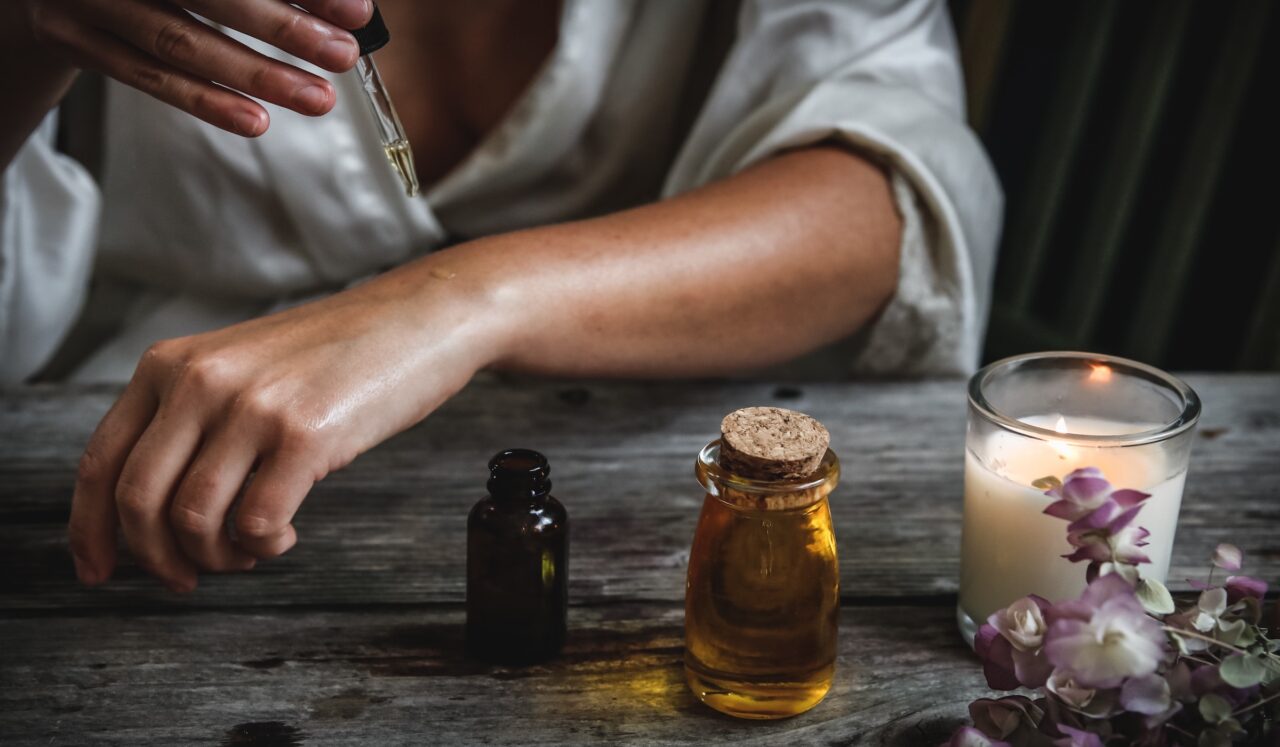If you have noticed that your patient’s skin is becoming dry or cracked, you have to help them look their best using these skin hygiene tips for in-home patients. Staying all day long at home can have an impact on one’s skin. However, that can be salvaged through proper skin hygiene.
Proper skin hygiene is a fundamental aspect of maintaining overall health and well-being, and it becomes even more critical for in-home patients who require specialized care due to limited mobility or prolonged bed rest.
In-home patients, which may include the elderly, individuals with chronic illnesses, or those recovering from injuries or surgeries, are particularly vulnerable to various skin issues and complications. These can range from minor irritations and dryness to more severe problems like pressure sores, infections, and dermatological disorders.
The skin serves as the body’s largest organ and acts as a protective barrier against harmful external agents, pathogens, and environmental factors. However, in-home patients face unique challenges that can compromise their skin’s integrity.
Reduced mobility and the need to stay in bed for extended periods can lead to constant pressure on specific areas, causing localized tissue damage and the formation of pressure ulcers. Additionally, decreased blood circulation, limited physical activity, and changes in nutritional intake can contribute to impaired wound healing and reduced skin resilience.
In this guide, we will show you essential skin hygiene tips for in-home patients designed to support caregivers in providing the best care possible. By following these practical and actionable steps, caregivers can promote healthy skin, prevent complications, and contribute to the overall health and comfort of their loved ones or patients.
Is it essential to care for an in-home patient skin?
While most caregivers are there to ensure an in-home patient is cared for, that sometimes includes caring for their hair, feeding them through effective diet planning, and bathing them. That also extends to caring for their skin and ensuring they do not lose their glow.
Maintaining optimal skin hygiene for in-home patients is essential for several key reasons:
- Prevents Skin Infections: Regular cleansing and proper hygiene practices help remove dirt, sweat, and bacteria from the skin’s surface. This reduces the risk of skin infections, which can be particularly concerning for individuals with weakened immune systems.
- Protects Against Pressure Sores: By implementing a consistent repositioning schedule and using pressure-relief cushions, caregivers can help prevent pressure sores from developing. These painful ulcers are a common concern for patients who spend extended periods in bed or a seated position.
- Promotes Skin Comfort and Well-Being: Maintaining clean, moisturized skin contributes to the patient’s overall comfort and sense of well-being. Proper skin hygiene tips for in-home patients can also alleviate skin dryness, itching, and discomfort, providing a more pleasant experience for the patient.
- Fastens Wound Healing: In cases where in-home patients have wounds or injuries, a healthy skin environment can facilitate quicker healing and reduce the risk of complications, such as infections.
- Enhances Quality of Life: By prioritizing skin hygiene, caregivers can significantly improve the quality of life for in-home patients. Healthy skin fosters a positive self-image and helps maintain the patient’s dignity, leading to improved emotional well-being.
15 Essential Skin Hygiene Tips for In-Home Patients
While this is not a professional guide or response to caring for the skin of an in-home patient, we have seen these strategies work. Below are some tips to care for the skin of an in-home patient:
1. Practice Daily Cleansing
Regular cleansing is essential to remove dirt, sweat, and bacteria from the skin’s surface. It helps prevent skin infections and keeps the skin fresh and clean. Choose a mild, pH-balanced cleanser specifically designed for sensitive or delicate skin.
Gently apply the cleanser using a soft cloth or sponge, and then rinse thoroughly with lukewarm water. Avoid using hot water, as it can strip the skin of its natural oils, leading to dryness and irritation.
2. Moisturize The Skin Regularly
Moisturizing is a crucial step in maintaining skin health, especially for in-home patients who may be prone to dry skin. Select a fragrance-free, hypoallergenic moisturizer that helps to retain the skin’s natural moisture.
After cleansing, gently apply the moisturizer all over the body, paying extra attention to areas that tend to get dry, such as elbows, knees, and heels.
3. Use Gentle Soaps For Bathing
Harsh soaps and cleansers can strip the skin of its natural oils and disrupt the skin’s protective barrier. Opt for gentle, non-irritating soaps or cleansers that are free from fragrances and dyes.
Look for products labeled as “hypoallergenic” or “for sensitive skin” to minimize the risk of skin irritation.
4. Check for Allergies Before Using Any Product
Before using any skincare product, perform a patch test on a small area of the skin to check for any allergic reactions. Apply a small amount of the product and wait for 24 hours to observe any signs of redness, itching, or irritation.
If an allergic reaction occurs, discontinue use immediately and consult a healthcare professional.
5. Pat Dry Patient’s Skin, Don’t Rub
After bathing or cleansing, gently pat the skin dry with a soft clean towel.
Avoid rubbing the skin vigorously, as this can cause friction and lead to skin irritation or damage, especially for patients with sensitive skin or compromised skin integrity.
6. Regularly Change the Patient’s Bed Position
In-home patients who spend extended periods in bed are at risk of developing pressure sores (bedsores). Regularly reposition the patient to relieve pressure on specific areas, such as the heels, hips, and shoulders.
Use pillows or specialized cushions to redistribute pressure and prevent the formation of pressure ulcers. If you think your patient has a bad bed, see How To Do A Bad Bed.
7. Ensure the Patient’s Room Is Adequately Ventilated
Proper ventilation in the patient’s room helps maintain a comfortable temperature and prevents excessive sweating. Excessive moisture on the skin can lead to maceration and make the skin more susceptible to infections.
8. Maintain The Patient’s Skin Integrity
Perform daily skin inspections to check for any signs of redness, pressure sores, or skin breakdown. Early detection is crucial, as it allows for prompt intervention and prevents the progression of skin issues.
9. Optimize the Patient’s Nutrition
A well-balanced diet with adequate protein, vitamins, and minerals is essential for healthy skin.
Protein is particularly important for tissue repair and maintenance, which can aid in the healing of any skin injuries or pressure sores. Consult a dietician or the patient’s doctor before doing this.
10. Manage Incontinence Effectively
If the patient experiences incontinence, it is crucial to change wet or soiled clothing promptly. Prolonged exposure to moisture can cause skin irritation and increase the risk of skin infections. Use absorbent pads or adult diapers if necessary.
11. Use Cushions and Pillows
Pressure-relief cushions and pillows can help distribute pressure more evenly, reducing the risk of pressure sores. Position these cushions strategically to support areas prone to pressure, such as the lower back, buttocks, and heels.
12. Avoid Harsh Chemicals
Avoid using harsh chemicals, strong detergents, or abrasive materials that may irritate the skin. Use gentle, non-irritating laundry detergents and soft fabrics for clothing and bedding.
13. Stay Hydrated
Encourage the patient to drink plenty of water throughout the day. Proper hydration helps maintain the skin’s moisture levels, preventing dryness and promoting overall health.
14. Wear Patient Loose-Fitting Clothing
Dress the patient in loose, breathable clothing made from soft materials. Tight clothing can cause friction and irritation, leading to skin problems.
See Important Clothing Considerations for Patients, this can guide your choice of clothing for your patient.
15. Regular Communication with Healthcare Professionals
Maintain regular communication with the patient’s healthcare team, including doctors, nurses, and caregivers. Keep them informed about any skin concerns or changes, so they can provide appropriate guidance and intervention when needed.
NOTE
Providing effective skin care for in-home patients requires an approach that goes beyond regular cleansing. You must be attentive to the patient’s individual needs, medical conditions, and skin sensitivities.
Have open communication with their healthcare professionals to address any skin concerns promptly and receive expert advice tailored to the patient’s specific situation.
By diligently following these skin hygiene tips, caregivers can significantly improve the patient’s skin health and overall well-being, ensuring they receive the best care possible.
We hope you found this guide helpful.
If you are in Indiana and looking for how to access quality care services and personalized client care plans, visit Good Hands home care agency, where care is offered with professionalism and efficiency.





